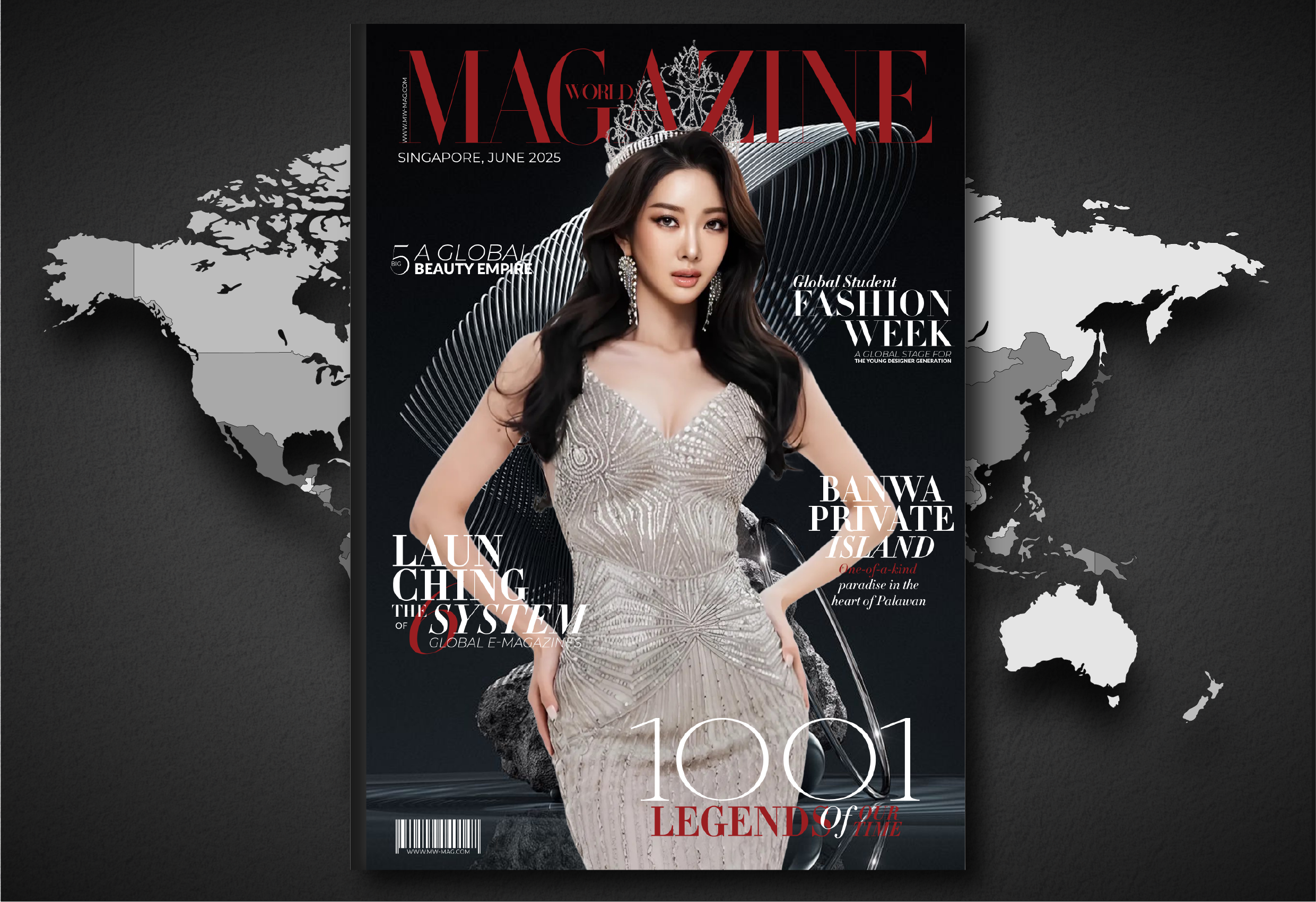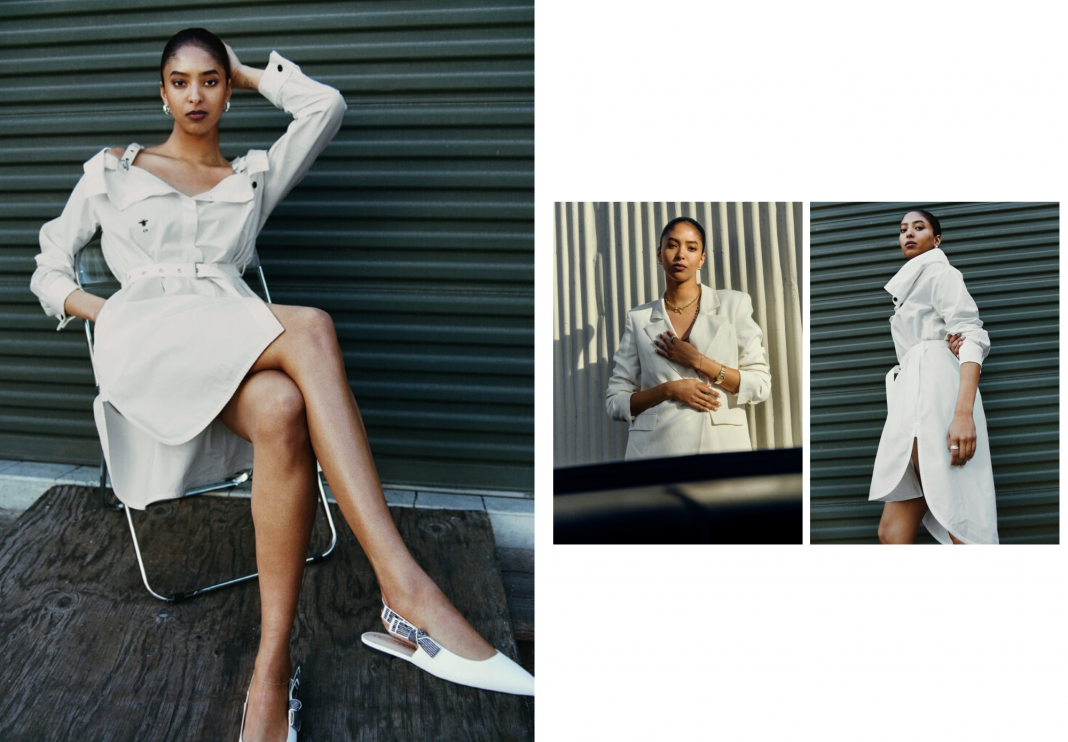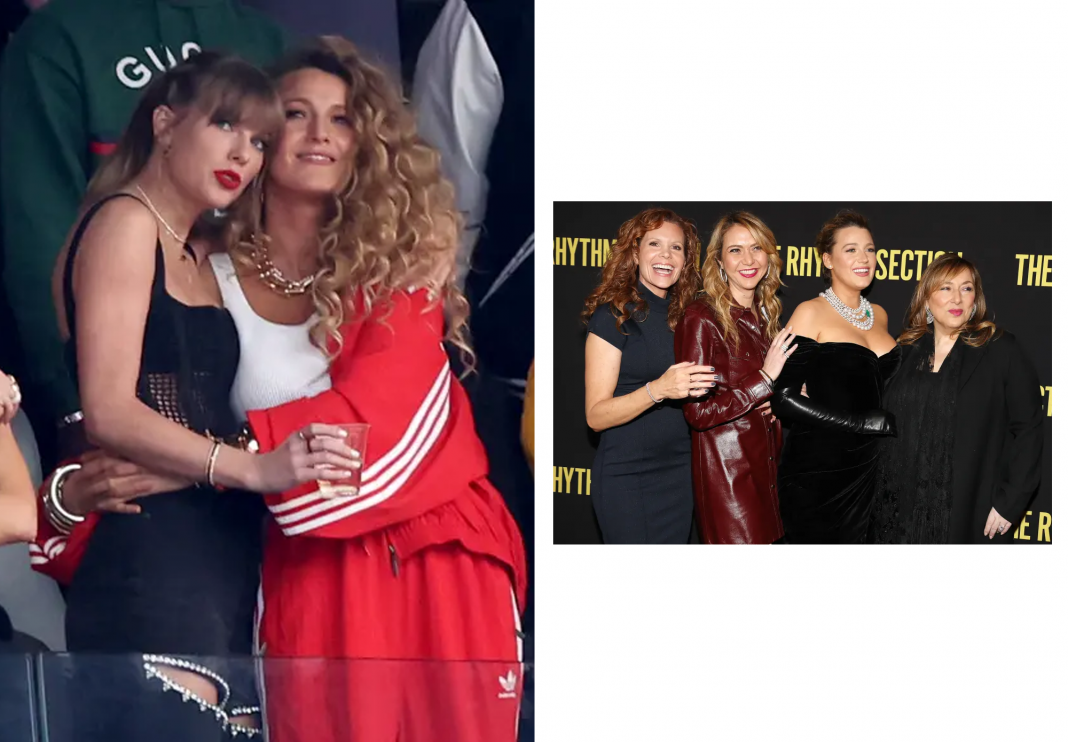The spring season ushers in powerful moments in fashion and luxury, marked by Linda Evangelista’s poignant return on the cover of Harper’s Bazaar and Mytheresa’s landmark acquisition of Yoox Net-a-Porter. As iconic style meets strategic business maneuvers, these stories encapsulate a dynamic moment for the industry. From personal triumph to corporate transformation, our latest issue dives into the stories shaping today’s fashion landscape.
Linda Evangelista’s Harper’s Bazaar cover: A story of resilience and reinvention
Linda Evangelista, one of the original supermodels who defined the 1990s runway, has graced the May 2025 cover of Harper’s Bazaar with a presence as powerful as ever. Photographed by Anthony Seklaoui and styled by Carlos Nazario, Evangelista’s covers show her wearing elegant pieces by Givenchy’s Sarah Burton and Loewe, blending classic sophistication with modern artistry. Beyond the fashion, however, this cover story resonates deeply on a human level.
In a heartfelt interview penned by Linda Wells, Evangelista opens up about surviving breast cancer and undergoing a double mastectomy. She reflects candidly on how her experience transformed her understanding of beauty and aging — topics often taboo in the fashion world’s youth-obsessed culture. Evangelista’s story challenges traditional beauty norms by embracing vulnerability and strength in equal measure.
Her journey offers inspiration, especially in an industry that often sidelines women as they age. Evangelista’s courage in sharing her reality encourages a broader conversation about inclusivity, resilience, and the evolving definitions of beauty. The Harper’s Bazaar May 2025 Beauty issue, released on May 6, promises to be a must-read for those interested in fashion, wellness, and empowerment.
Mytheresa’s acquisition of Yoox Net-a-Porter: A game-changer for luxury E-commerce
While the world watches supermodels reclaim their narratives, the luxury fashion market witnesses significant corporate shifts. On May 15, Mytheresa, a leading global luxury online retailer, finalized its acquisition of Yoox Net-a-Porter (YNAP), signaling a major consolidation in the digital retail space.
The deal, completed through Mytheresa’s subsidiary Richemont Italia Holding S.P.A., positions Mytheresa as the sole shareholder of YNAP. This acquisition is not just a financial transaction; it marks a strategic move to unify leading luxury platforms under one umbrella. Richemont, which previously owned YNAP, received nearly 50 million shares in Mytheresa, representing a 33% stake in the company.
With this merger, Mytheresa gains access to YNAP’s vast network of luxury brands and its extensive customer base, bolstering its competitive edge against rivals like Farfetch and Net-a-Porter. The combined strength is expected to enhance customer experience through an expanded portfolio, technological innovation, and increased market reach.
Industry experts anticipate that this consolidation will accelerate digital transformation in luxury retail, emphasizing personalized service and sustainability initiatives. Mytheresa’s bold step is a testament to the evolving nature of fashion commerce — where seamless online shopping and curated luxury coexist.
Emerging retail trends: HommeGirls’ New York store and Phia’s Innovation in shopping technology
In other retail news, bi-annual fashion magazine HommeGirls has launched its first physical store in New York City’s vibrant Chinatown district. The store features the brand’s signature ready-to-wear collections, including classic striped button-ups and sleek trench coats, alongside its print publications. Designed by Rafael de Cárdenas, Ltd., the space creatively integrates elements like a rotating dry cleaner’s rack, offering a unique blend of fashion retail and artistic installation.
This move reflects a growing trend where digital-first brands are embracing brick-and-mortar spaces to deepen consumer engagement. By offering a tactile experience alongside their digital presence, brands like HommeGirls are redefining how consumers connect with fashion, making physical stores places of discovery and community. Meanwhile, tech innovation in retail receives a boost from Phoebe Gates, youngest daughter of Bill and Melinda Gates, who recently launched Phia, an online shopping tool co-created with Stanford roommate Sophia Kianni. Phia instantly compares prices from thousands of e-commerce sites, offering consumers an efficient way to find the best deals. Despite speculation about her influential name aiding the project, Gates emphasizes the platform’s independent value and its potential to disrupt traditional online shopping patterns.
Luxury market performance: Kering’s decline and unilever’s steady growth
While new initiatives energize the market, the luxury sector faces contrasting financial realities. Kering Group, owner of Gucci, Yves Saint Laurent, and Bottega Veneta, reported a 14% decline in first-quarter revenue for 2025. The dip was primarily driven by Gucci, whose revenue fell by 24%, highlighting ongoing challenges in luxury brand management and global economic headwinds.
Sales through Kering’s retail network dropped by 16%, reflecting shifting consumer behavior and perhaps a recalibration of spending priorities. The decline underscores the need for luxury houses to innovate rapidly in both product offerings and market strategies, especially amid inflationary pressures and evolving demographics. In contrast, consumer goods giant Unilever posted a 3% increase in underlying sales in Q1 2025, fueled by growth in premium and innovation-led products. The company’s Beauty & Wellbeing sector showed particularly strong performance, reflecting consumer demand for quality and wellness-oriented brands. Unilever’s CEO, Fernando Fernandez, credited this success to strategic portfolio management and market adaptation. These divergent results highlight the complexity of today’s global market, where luxury and mass consumer goods sectors must navigate distinct yet interconnected challenges and opportunities.
Looking ahead: Fashion, technology, and resilience
The stories shaping this spring season reveal an industry balancing tradition and innovation, personal narrative and corporate strategy. Linda Evangelista’s cover reminds us of the power of vulnerability and reinvention, while Mytheresa’s acquisition signals a new chapter in luxury retail’s evolution.
Emerging brands like HommeGirls and tech ventures such as Phia showcase how retail is becoming an experiential and tech-driven space. Meanwhile, the financial shifts within Kering and Unilever reflect broader economic currents that will influence fashion’s future trajectory.
As the fashion and luxury sectors embrace these changes, one thing remains clear: resilience and adaptability will define success. Whether on the runway, in boardrooms, or through consumer experiences, the capacity to innovate while honoring heritage will be crucial in the seasons to come.






